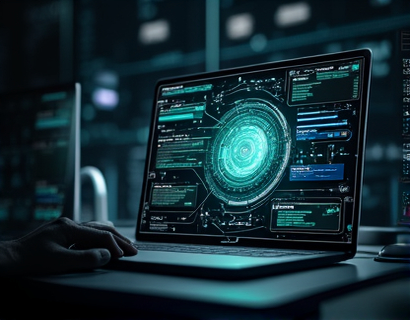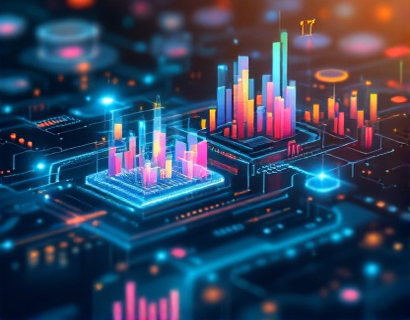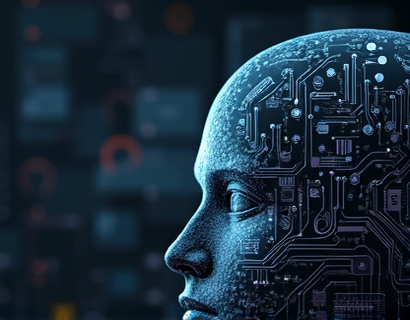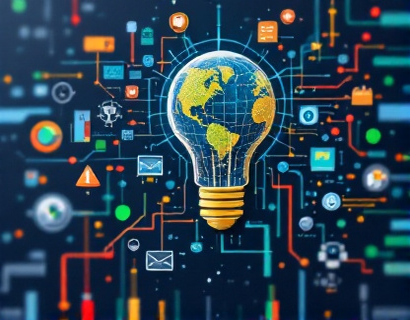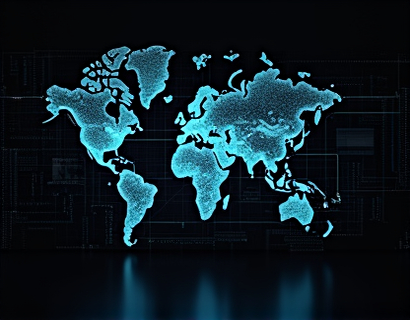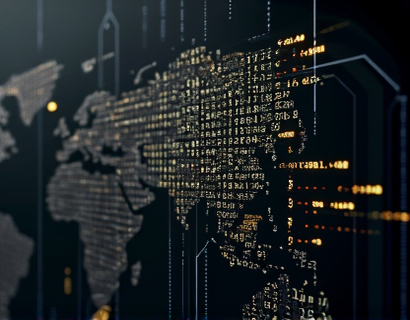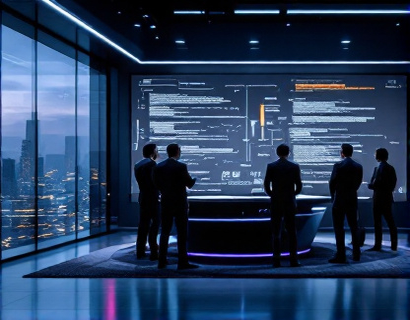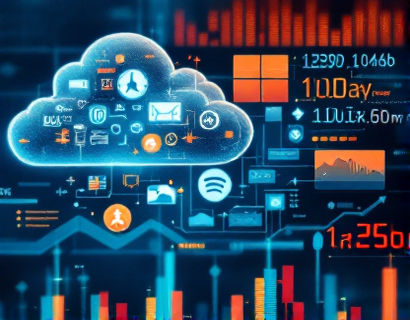Unlocking Digital Transformation: Leveraging AI and Crypto for Enhanced Productivity and Streamlined Task Management
The digital landscape is rapidly evolving, driven by technological advancements that promise to redefine how we work and manage tasks. At the forefront of this transformation are two revolutionary technologies: Artificial Intelligence (AI) and Cryptocurrency. By merging these powerful tools, businesses and individuals can unlock unprecedented levels of productivity and efficiency. This article delves into the ways AI and crypto are reshaping the future of digital productivity, offering insights for tech-savvy innovators and early adopters.
AI has become an indispensable asset in the modern workplace, automating routine tasks and providing intelligent insights that enhance decision-making. From predictive analytics to natural language processing, AI technologies are transforming the way organizations operate. When combined with the decentralized and secure nature of cryptocurrency, the potential for innovation becomes even more profound.
Enhancing Task Management with AI
One of the most immediate impacts of AI in the workplace is in task management. AI-driven tools can analyze vast amounts of data to optimize workflows, predict bottlenecks, and automate repetitive tasks. For instance, AI can schedule meetings based on availability, prioritize emails, and even draft responses, freeing up valuable time for more strategic activities. These tools learn from user behavior, continuously improving their performance and adapting to individual needs.
Project management platforms powered by AI can provide real-time updates on project progress, allocate resources efficiently, and ensure that deadlines are met. By integrating AI with existing task management software, teams can achieve higher levels of coordination and productivity. The ability to predict potential issues before they arise allows for proactive problem-solving, reducing delays and enhancing overall project success rates.
Cryptocurrency and Decentralized Workflows
Cryptocurrency introduces a new paradigm for financial transactions, offering transparency, security, and decentralization. In the context of task management and productivity, crypto can facilitate seamless and secure payments, eliminate intermediaries, and provide a trustless environment for transactions. Smart contracts, self-executing contracts with the terms directly written into code, can automate payment processes based on predefined conditions, ensuring that tasks are completed as agreed upon.
Decentralized applications (dApps) built on blockchain technology can further enhance task management by providing a platform where tasks can be assigned, tracked, and rewarded without the need for central authorities. This not only reduces administrative overhead but also increases trust and accountability among team members. The immutable nature of blockchain ensures that all transactions and task statuses are transparent and tamper-proof.
Integration of AI and Crypto for Optimal Efficiency
The true power of AI and crypto is realized when they are integrated seamlessly. For example, AI can analyze transaction patterns and optimize cryptocurrency investments, providing insights that traditional methods cannot match. In a business setting, this integration can lead to more informed financial decisions and better resource allocation. AI-driven analytics can also help in identifying fraudulent activities by monitoring blockchain transactions, enhancing security and trust in digital transactions.
Moreover, AI can facilitate the creation and management of digital assets, such as NFTs (Non-Fungible Tokens), which can be used to represent ownership or rights within a digital ecosystem. This opens up new possibilities for incentivizing tasks and rewarding contributions in a fair and transparent manner. For instance, AI can dynamically adjust the value of these digital assets based on performance metrics, ensuring that rewards are aligned with contributions.
User Experience and Accessibility
For these advanced technologies to be widely adopted, user experience and accessibility are crucial. The integration of AI and crypto should not create barriers but rather enhance the user journey. Intuitive interfaces, clear guidance, and educational resources are essential to help users navigate these complex systems. Ujano, a platform that focuses on merging AI and crypto, emphasizes the importance of user-centric design in its applications and services.
By prioritizing user experience, these platforms can attract a broader audience, including those who may be new to AI and cryptocurrency. This inclusivity ensures that the benefits of digital transformation are accessible to a wider range of users, fostering a more diverse and innovative ecosystem.
Case Studies and Real-World Applications
Several organizations have already begun to leverage the combination of AI and crypto to enhance productivity and task management. For instance, a tech company used AI to optimize its software development workflow, reducing the time to market for new features by 30%. By integrating a blockchain-based task management system, the company ensured that all team members had real-time access to project statuses and could verify task completions through smart contracts.
Another example is a creative agency that implemented an AI-powered content generation tool, which not only streamlined content creation but also used cryptocurrency to reward content creators based on engagement metrics. This approach not only improved efficiency but also aligned incentives, leading to higher quality content and increased client satisfaction.
Challenges and Considerations
While the potential benefits are significant, there are challenges to consider when integrating AI and crypto into task management systems. Regulatory compliance is a major concern, as the crypto space is still evolving and subject to varying regulations across different jurisdictions. Ensuring compliance while maintaining the decentralized nature of crypto solutions requires careful planning and legal expertise.
Another challenge is the technical complexity involved in integrating these technologies. Organizations need to invest in skilled personnel or partner with experts who can navigate the intricacies of AI and blockchain. Additionally, security remains a paramount concern, as both AI and crypto systems can be vulnerable to attacks if not properly secured.
Future Outlook
The future of digital productivity is bright, with AI and crypto set to play pivotal roles. As these technologies continue to mature, we can expect even more innovative applications and integrations. The convergence of AI and crypto will likely lead to the development of more autonomous and self-sustaining systems, where tasks are managed with minimal human intervention. This could result in unprecedented levels of efficiency and productivity, allowing individuals and organizations to focus on higher-value activities.
Moreover, the rise of decentralized autonomous organizations (DAOs) powered by AI and crypto could redefine how work is organized and incentivized. DAOs can operate on transparent, rule-based systems, ensuring that tasks are distributed fairly and rewards are distributed based on contributions. This model has the potential to create more equitable and collaborative work environments.
In conclusion, the integration of AI and crypto offers a powerful pathway to unlocking the full potential of digital transformation. By enhancing task management, optimizing workflows, and creating secure and transparent systems, these technologies are set to revolutionize the way we work. For those ready to embrace the future, the possibilities are endless.










